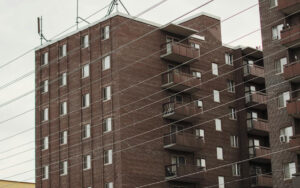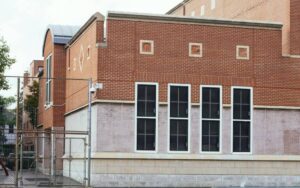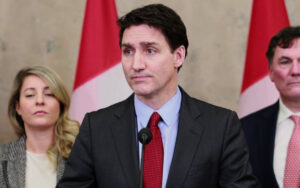Last Updated: Friday, January, 5, 2024, 10:32am

Niagara’s regional government is increasing its property tax burden at a faster rate than any other regional council in Ontario. Pictured is Niagara Regional Chair Jim Bradley. Photo Credit: Niagara Region.
Niagara Regional Council is imposing the highest regional property tax increase in all of Ontario in 2024. The tax hike Niagara Region’s residents face this year will come in at 7.02 per cent.
Cities and towns in Ontario fall into two camps: those that have one local government, known as single tier, and those that have two levels of local government, known as upper and lower tiers.
Unlike single-tier municipalities, residents of the Niagara Region essentially pay two property tax bills. One is set by Regional Council and the other is set by the local municipality taxpayers live in.
On the regional portion of Niagara residents’ property tax bill in 2024, taxpayers are facing a 7.02 per cent tax increase. That comes on the heels of a 7.58 per cent increase in 2023.
That’s a property tax increase of more than 14.6 per cent over a two-year period. That figure doesn’t even factor in property tax increases being imposed at the lower-tier level.
Niagara taxpayers are being hit harder than those who live in other parts of Ontario. Niagara’s regional government is increasing its property tax burden at a faster rate than any other regional council in Ontario.
The province presently has six regional governments: Durham, Halton, Niagara, Peel, Waterloo and York. Halton’s regional tax hike for 2024 is the lowest, coming in at 3.4 per cent, while Niagara’s is the highest at 7.02 per cent.
The list fills out with tax increases of 3.75 per cent in York, 3.9 per cent in Durham, 4.5 per cent in Peel and 6.9 per cent in Waterloo.
Niagara Regional Chair Jim Bradley tried to justify the 7.02 per cent property tax increase in a statement released in December.
“As Niagara Regional Chair, I understand the concerns of our community amidst these tough financial conditions,” Bradley said. “The 2024 Regional Budget reflects Council’s need to maintain good public programs and services, while also managing several external pressures.”
However, with 50 per cent of Canadian families now saying that they’re $200 away from not being able to pay their bills, this year’s property tax hike could ultimately break family budgets.
Despite this heavy new tax burden, the Region’s councillors overwhelmingly voted to approve the 2024 operating budget. Twenty-four councillors voted in favour and just four councillors voted against.
The tax hike was largely caused by plans to increase operating spending by $51.4 million over 2023 levels, including allocating an additional $29.5 million to employee compensation.
Overall operating spending in 2024 will reach $1.05 billion.
Despite the lopsided vote, some councillors who supported the budget did express concerns.
Councillor Brian Heit, representing St. Catharines, noted that although he voted to support the budget, he did have some concerns about the increased tax burden. He also highlighted the need “to cut some of the fat out of next year’s budget,” to avoid such significant property tax increases going forward.
Regional staff are already projecting property tax increases of around six per cent for 2025 and 2026. To avoid major tax hikes in future years, Heit emphasized that finding budget savings will be paramount.
To dodge a repeat of this year’s budget, which saw the Region impose the largest property tax hike among Ontario’s regional governments, significant changes to the Region’s spending habits must be considered. First among them is getting control over soaring compensation costs.

Jay Goldberg is the Ontario Director at the Canadian Taxpayers Federation. He previously served as a policy fellow at the Munk School of Public Policy and Global Affairs. Jay holds a Ph.D. in Political Science from the University of Toronto.




















